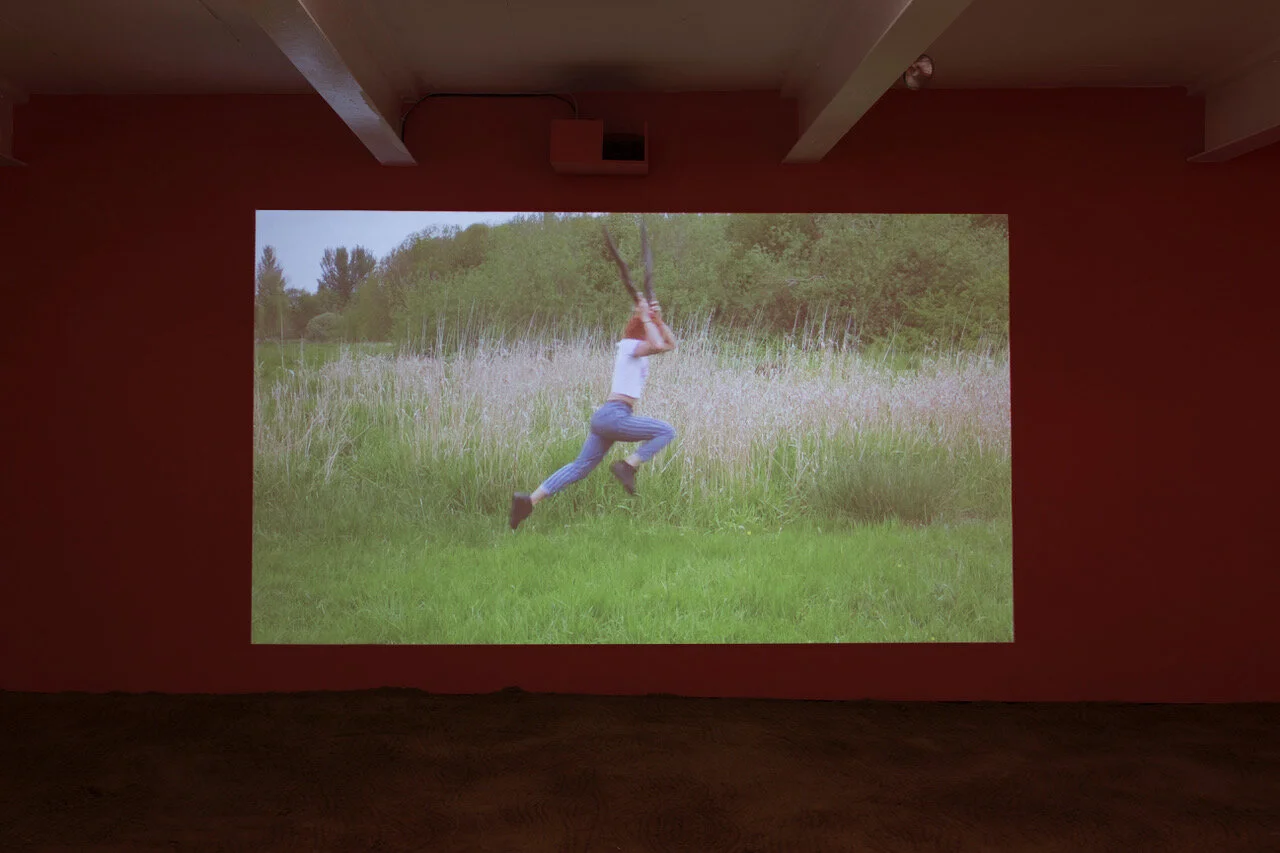#140 Tulani Hlalo, Thanks Dad
15 June - 8 July
Tulani Hlalo (b.1994) in Newcastle upon Tyne, currently lives and works in Manchester. She studied BA Fine Art at Manchester School of Art, graduating in 2017. Tulani uses humorous performative videos and sculptural works as a method of reconnecting with the Zimbabwean heritage she once neglected in her childhood. Although the subjects she touches upon in her work are personal, she sees such themes as universal in the context of growing up and existing as mixed race in the uk.
A conversation via email between Tulani Hlalo and Lily Troup, 13th June 2018.
Lily Troup: So, what is an eland?
Tulani Hlalo: An Eland is the largest member of the antelope family (so big to the point where most predators don’t bother with them… so I’m told) and it also happens to be my family’s totem animal. In Zimbabwean culture each family is gifted a totem animal and which can only be passed onto you by your father. Each animal carries philosophical traits, the Eland for example ‘cannot be caught’ - take from that what you will.
LT: The phrase ‘Thanks Dad’ is often used sarcastically, for example when one is given unnecessary advice or advice they haven’t asked for. Is that a sentiment you can relate to?
TH: To some extent yes, you know when you were younger and you’d be with a group of mates and your parents would tell ‘embarrassing’ stories, which weren’t even that embarrassing, but because you’re an awkward teenager EVERYTHING is embarrassing? It’s kind of like looking back at those sort of situations with hindsight now that you’re an adult and have essentially turned into your parents, it’s that kind of ‘Thanks Dad’ (if you get me.) At the same time it’s a totally genuine ‘Thanks Dad’ too. Thanks for the Eland, thanks for these distinctive teeth and most importunely thanks for partly raising me.
LT: There’s a sensitivity to tone in your work - I find it humorous but not completely lighthearted. Would you agree?
TH: Totally! I think that’s the fine line I’ve been trying to tread with my practice over the past year. I’m the least serious person you’ll meet and I think its important to reflect that in my practice. I’d say the moment I realised that art doesn’t have to be super serious and super intellectual all the time was a turning point for me. I do touch on socio political issues of belonging and heritage but its never to the point where you’d have to read a 1000 page thesis to fully understand it contextually. One because I like to leave it quite open to interpretation and two because I’m dyslexic the idea of reading a 1000 word essay sounds like actual hell to be fully honest with you.
LT: What kind of decisions have you made with regard to colour? For example, why have the walls been painted orange and the horn sculptures been left white?
TH: The colours I use in my installations have some form of context whether it be personal or contextual to the subject matter of the work, or both. Orange is a colour I very strongly connect to Zimbabwe. It’s a natural occurrence everywhere. As for the white horns I’m really into the untreated or dyed qualities of plaster, always have been, don’t know if I always will be though but for the moment I am.
LT: Finally, what does heritage mean to you?
TH: Heritage for me is a fairly new thing, as weird as that sounds. Ive always had this Zimbabwean heritage but I’ve only really paid it any attention in my adult life. I guess that came from going to predominantly white schools and wanting to fit in, like there was this running joke that I was the whitest mix race person you’d ever meet and I’d always entertain it because at the time I believed it. I don’t know why I blocked my heritage out and I can’t really pinpoint when I decided to throw myself into it fully but I’d say using my practice as a low key mission of self discovery was probably a good starting point.
Photo credit: Alec Game










